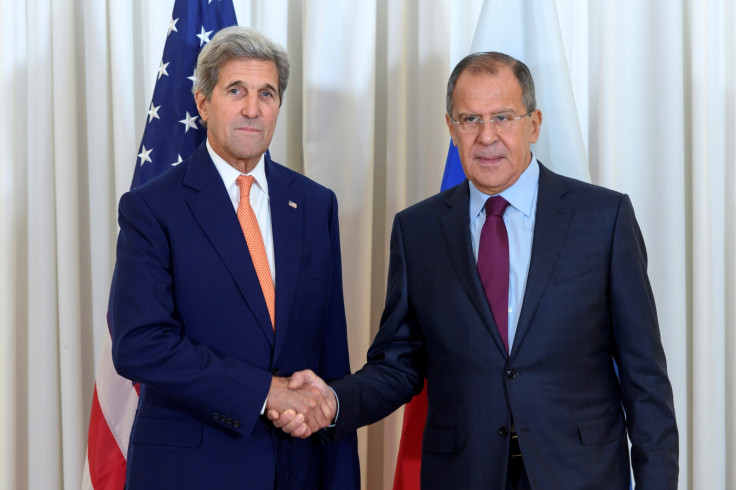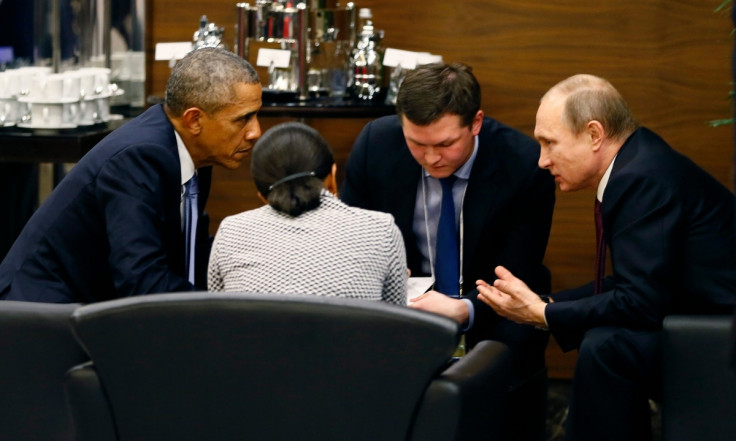US-Russia Syria deal falls through as Obama blames 'grave differences'
Talks to end brutal conflict between the countries will continue on Monday.
Talks between the US and Russia to agree a ceasefire deal for Syria fell through on Sunday (4 September), with the US President Barack Obama saying"grave differences" remain between the countries.
Negotiators had been optimistic a deal could be reached in the backdrop of the summit, leading to reporters being told to expect an announcement by Kerry and Lavrov at a press conference. However, officials removed Lavrov's podium moments before Kerry came out alone to announce the talks had fallen through.
Kerry said the two sides would continue to work through issues but said the US did not want to enter into an illegitimate agreement stating, "we're not going to rush".
A senior US official said talks began to falter when Russia flip-flopped on issues the US believed had already been resolved.
Negotiations for the unlikely military partnership are set to continue on Monday, despite US doubts that talks with Russia would never reach a fruitful conclusion.
The deal, which is being brokered by US Secretary of State John Kerry and Russian Foreign Minister Sergei Lavrov, would be the third significant attempt since July to end years of discord between Syria's Russian-backed government and US-supported rebels.
On Saturday (3 September) an unnamed US State Department official told Associated Press that a deal between Russia and the US had been reached. But on Sunday (4 September), on the sidelines of the G20 economic summit in China, President Obama rebuked claims an agreement was in sight.
"We're not there yet," Obama said. "I think it's premature for us to say there's a clear path forward, but there's the possibility at least for us to make some progress."
New talks strategy
The US State Department has now said it is seeking a nationwide ceasefire between the Russian-backed Syrian government and rebels, rather than a further "cessation of hostilities" which has proved unsuccessful in the past.
A ceasefire negotiated by the superpowers broke down in February, and peace talks between the Syrian government and opposition were put on hold earlier this year.

Since then, fighting in the devastating five-year conflict has intensified in many areas, especially around the strategic city of Aleppo in Northern Syria.
A new ceasefire deal would mean crucial humanitarian aid and provisions could reach war-torn regions, allowing safe passage for civilians caught in the crossfire.
The rebel problem
Measures to prevent Assad's government from bombing areas where US-backed rebels are operating would also feature in the deal. But halting Assad's offensives will depend on Russian support, which so far, has not been forthcoming.
The US also faces the difficulty of getting rebels to break ranks with the Nusra Front: a difficult challenge, after its fighters successfully broke the siege of Aleppo last month.

The US will look to persuade Russia to focus its military efforts exclusively on Islamic State and al-Qaida-allied groups in the deal, rather than the legitimate rebel forces.
However, US Defense Secretary Ash Carter and National Intelligence Director James Clapper have both expressed their concern over sharing sensitive intelligence and targeting information with Moscow.
The 5-year civil war
The Syrian conflict has resulted in casualties of more than 250,000 people.
The bloody civil war is thought to have displaced over 11 million people, contributing to the worst global migration crisis in modern times.
A rise in extremist militant Islamist groups in Europe is also attributed to the conflict which has been raging for the past five years.
© Copyright IBTimes 2024. All rights reserved.






